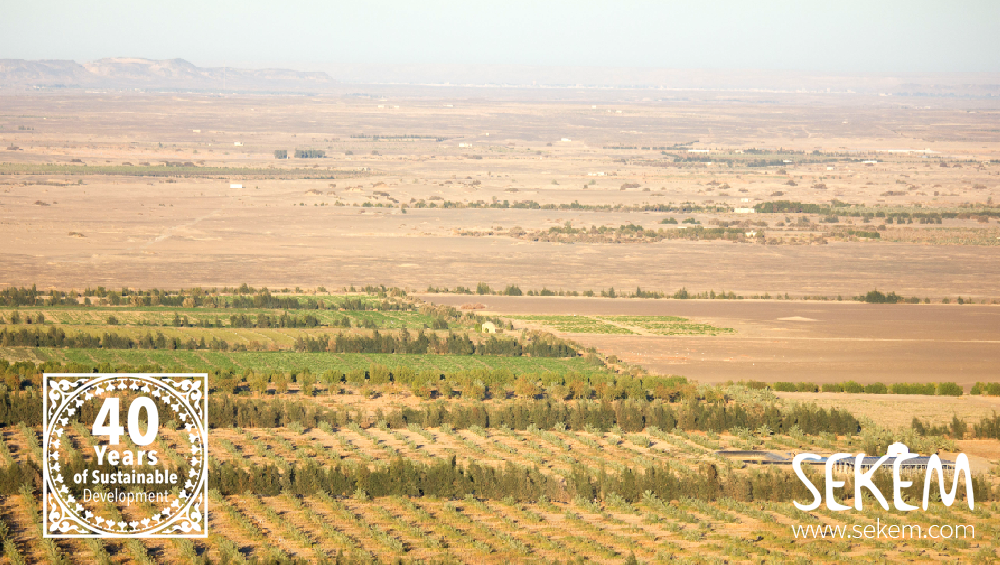In 2015, SEKEM Initiative was awarded with the “Land for Life Award” by the United Nations Convention to Combat Desertification for its outstanding contribution to the reappearance of dry areas. This year’s World Day to Combat Desertification is celebrated by the United Nations under the slogan “Our Country. Our Home. Our Future”. And SEKEM Initiative celebrates 40 years of sustainable development in the desert.
Almost every minute, the desert grows equivalent to the size of a football field. More than 250 million people worldwide are affected by desertification and one third of the earth’s surface is threatened of drought. Soil erosion is a global challenge, but in Egypt, a country that consists already of more than 90% desert land, it is of even higher relevance.
Water scarcity, climate change, overpopulation: Egypt’s challenges through desertification
Over the past 50 years, the number of Egyptians has quadruplicated. Today, more than 91 million people are trying to live on the fertile ground along the river Nile. Egypt is importing 40% of its food. In order to counteract this, a huge number of pesticides and artificial fertilizers is used in agriculture. This pollutes the already low yielding soil – the land continues to devastate. In addition, the chemicals poison the precious groundwater, which is the country`s only source of water, besides the River Nile. And: Egypt is already living in water scarcity. The average water consumption per capita is around 660 cubic meters per year – the world-wide average counts 1,000 cubic meters. A United Nations forecast says that the availability of water per capita will even fall below 500 cubic meters in 2020.
The desert country is particularly affected by the effects of climate change. The sea level rising, for instance, is a direct result of global warming – the Nile Delta falls 3-5 millimeters per year. A one-meter rise of the sea would flood a quarter of the delta – more than 10% of the Egyptian population would lose their homes.
Holistic commitment to desertification
“We need to consider the country’s environmental problems on a broader scale and then take a holistic approach,” says Helmy Abouleish, CEO of SEKEM Initiative. “It is not enough to only apply sustainable agriculture. People’s awareness has to be promoted through education, and economic activities need a much more sustainable approach.”
Since 1977, SEKEM has reclaimed over 680 hectares desert land by biodynamic farming methods. In addition, the initiative cooperates with around 400 contracted farmers all over Egypt that cultivate another 840 hectares of land biologically.
Biodynamic agriculture prevents, for instance, a depletion of soils, it creates more organic matter and a broad spectrum of microbiological life. This allows the soil to store up to 40% more water and bind an average of about 3 tons of CO2e per hectare and per year. “This is a clear evidence that organic agriculture plays a key role in combating climate change,” says Abouleish.
After 40 years of sustainable commitment for Egypt`s future, SEKEM is convinced that desertification as well as other challenges that the country faces can be overcome: If desert land is reclaimed biodynamically, economic activities are conducted holistically and the people`s potential is promoted.
SEKEM Wins Land For Life Award
Helmy Abouleish: Life Is Great!

